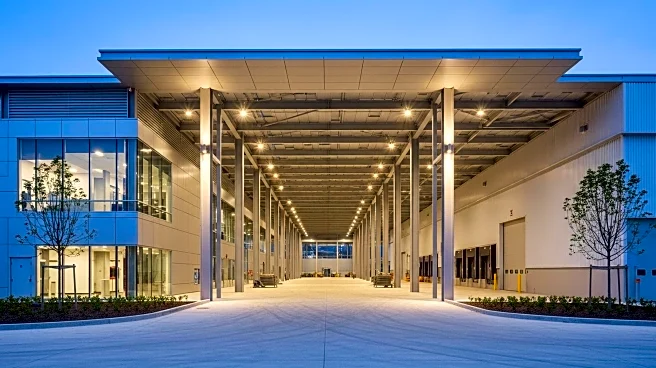What's Happening?
Vietnam has experienced a significant surge in foreign direct investment (FDI) into its manufacturing sector, reaching nearly $12 billion USD in the first half of 2025. This marks a 32% year-on-year increase and is the highest level of FDI inflow since 2009. The influx of investment is driving growth in Vietnam's industrial real estate market, with both domestic and foreign enterprises expanding their industrial land portfolios and investing in infrastructure, logistics, and ready-built factories. John Campbell, Director of Industrial Services at Savills Ho Chi Minh City, emphasized that this growth represents a structural shift, supporting Vietnam's roadmap toward high-value and sustainable industrial development.
Why It's Important?
The increase in FDI is crucial for Vietnam's economic trajectory, as it supports the country's transition to high-value and sustainable industrial development. The surge in investment is not only a response to global volatility but also positions Vietnam as a prioritized link in the global production chain. The 'China + 1' supply chain diversification strategy, along with free trade agreements like RCEP, CPTPP, and EVFTA, enhances Vietnam's appeal to export-oriented manufacturers. The focus on green and high-tech FDI projects, such as Lego's green factory and chip packaging investments, indicates a shift toward modern, environmentally friendly industrial models.
What's Next?
Vietnam's industrial real estate market is expected to continue attracting FDI, with ready-built factories (RBFs) becoming increasingly dominant over land purchases. The demand for RBFs is driving up rental yields and occupancy rates, prompting sectoral expansion. To sustain investment appeal, Vietnam plans to expand infrastructure connectivity, upgrade seaports and inland container depots, and cultivate a highly skilled workforce for semiconductors and high-tech manufacturing. Adjustments to incentive policies in line with the global minimum tax are also anticipated to retain Vietnam's investment attractiveness.
Beyond the Headlines
The shift toward ready-built factories and green industrial models reflects broader trends in global manufacturing, emphasizing sustainability and rapid deployment. Vietnam's strategic location and competitive labor costs make it an attractive destination for multinational corporations seeking politically stable and tax-friendly alternatives. The focus on high-tech sectors adhering to ESG standards highlights the growing importance of environmental, social, and governance factors in investment decisions.









